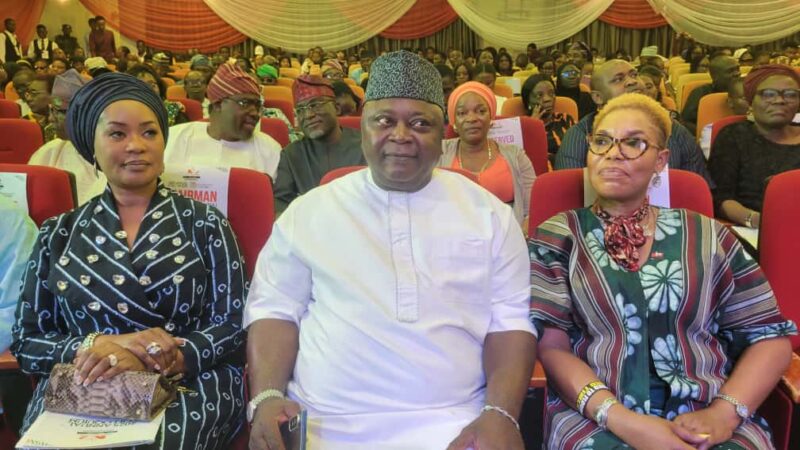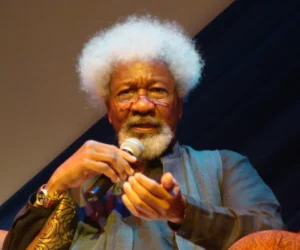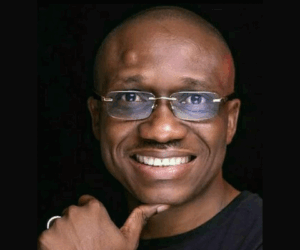Governorship candidate of the People’s Democratic Party (PDP) during the 2023 election in Ogun State, Oladipupo Adebutu, says Nigeria is currently sliding into a totalitarian state.
He blamed this on what he called stifling of the opposition, weak institutions and lack of empathy by many leaders in the government.
Adebutu spoke on Thursday in Abeokuta, Ogun State, at the 2025 Annual Colloquium of the Nigerian Institute of Public Relations (NIPR), the state chapter.
SPONSOR AD
The colloquium which has “Leadership and Reputation: The Role of Public Relations in Building Trust in Nigeria”, as its theme also featured awards presentation to prominent Nigerians like the Inspector General of Police, Kayode Egbetokun, and former first lady in the state, Mrs Olufunsho Amosun.
In his remarks, Adebutu, who was the chairman of the occasion, identified reputation and leadership as co-travellers in the development of any nation.
He, however, expressed worry that many leaders in government have thrown caution, courtesy and empathy to the wind “as if there’s no reputation to be worried about.”
Adebutu said it is sad when a nation gradually gravitates towards “grab it, steal it, and run with it” situation.
“We have lost courtesy and empathy for ourselves as a nation. We have lost conscience as a people,” Adebutu said.
He said “You cannot talk about reputation without going into governance. It’s sad when you have a nation that gradually gravitates towards a situation… grab it, steal it, run with it. The fundamental tenets of democracy are broken. What kind of leadership is that? What kind of reputation are you impacting on society?
“All these things collectively have one end point – stifle democracy, development and then corruption continues.”
The former House of Representatives member said he has remained in the opposition party because there is value for it.
“That’s why I remain in the party that I’m in because there’s value in the opposition.
“When there’s no opposition then you have no democracy, you have no checks and balances in this system that we’re running. Gradually we are moving into a totalitarian state, very sadly so, because institutions are gradually being degraded,” Adebutu said.
He called on the media practitioners to speak the truth to power in order to entrench democratic principles and for the greatness of Nigeria.
The Keynote Speaker, Adetokunbo Modupe, described reputation as the capital for a country and warned citizens against diminishing the country’s reputation through negative messages.
“Indeed, the perception of a country is reflected in the value placed on its citizens. If you want to know the reputation of your country, look at the value placed on you when you step out of Nigeria.
“We have data and if I present data to you all on how the world sees Nigeria today, you will feel very sorry for our country.
“However, it’s not all gloom and doom. We have the bad side and we have the great side,” he said.
Modupe, who is the founder and chief consultant of TPT International Limited, insisted that building a reputation for Nigeria is a collective responsibility of both the leaders and citizens.
In separate remarks, the National President of NIPR, Dr Ike Neliaku and the State Chairman, Oluwaseun Boye, emphasized the critical roles of the PR in building trust in Nigeria.
Neliaku represented by Tope Adaramola, a council member, stressed his commitment to building NIPR as a formidable institution in Nigeria by putting in place strategies towards ensuring that the institute becomes stronger than any individual “bearing in mind that the major deficit of our nation is that we have strong men and very weak institutions.”
He also identified the key roles of PR in building trust, including authentic communication, consistent messaging, reputation management, crisis communication and storytelling.
He said “The role of PR in building trust in Nigeria cannot be more apt than now because of the disconnect that exists between the leadership and the lead.
“You must realise that as professionals that PR builds trust through authentic and consistent communication, reputation management and strategic stakeholders’ engagement with the intent to foster positive relationships between organisations and the public.”








